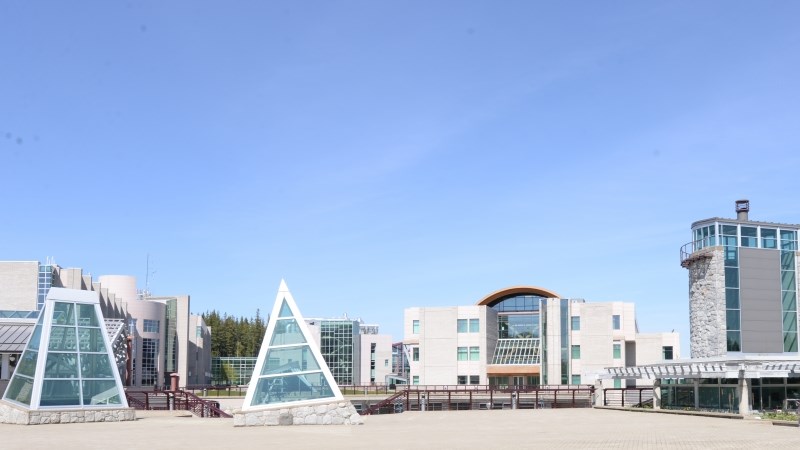Thirty-five years ago, a group of caring local residents formed the Interior University Society in an effort to convince the B.C. government that Prince George needed a university.
The purpose was to keep young people from leaving the region to attend university elsewhere. But it was also about prestige and ambition. Prince George residents were tired of being seen as little more than ignorant loggers. They wanted to show the rest of the province they knew about more than just the smell of money from the local pulp mills. They also wanted to be better than Kamloops and Kelowna.
UNBC has been great for the city and the region in many ways but the southern disdain, for Central and Northern B.C. in general and Prince George in particular, is as strong as it ever was. And while there is great community pride in UNBC, there is also resentment among many citizens towards the jewel on the hill, the people who work there and its students.
There has been much written about the anti-academia sentiment running through North American society but it’s often dismissed as jealous, semi-illiterate dummies who weren’t smart enough in high school to go get a degree and a real job in the professional class.
It’s that dismissive wave of the hand, that lack of respect, that inflated sense of self-value that frustrates hard-working local residents with a high school education or a college diploma or a trade ticket, whose tax dollars pay for that university. They resent the blatant lies that higher education equals greater wisdom and understanding, that people with degrees are automatically better than people who don’t have one and that being a smart person is more valuable than being a good person.
Many of the highly educated professionals and the people who teach them are so impressed by their own smarts and the alphabet soup of status-conferring initials after their names that they can’t see their own blind spots.
Racism, sexism and most other forms of discrimination are unwelcomed across 21st century Canadian society but there is one form of prejudice openly practiced and it revolves around education. If you don’t have a university degree or aren’t working towards one, the prevailing attitude in the professional class is that you’re choosing to be dumb or you’re too dumb to learn.
The guiding philosophy among the leaders and the learned in the late 19th century and early 20th century was the white man’s burden, that it was the God-given duty of powerful and wealthy white men to take care of everyone else because the unwashed masses were simply incapable of looking after themselves. These good intentions led to colonialism, residential schools, eugenics, mass sterilizations and indefinite institutional jail terms for people with mental health illnesses.
The guiding philosophy among the leaders and the learned of today is the smart person’s burden, that it is the moral obligation of the educated class to manage modern society on behalf of the ignorant and the uninformed.
How’s that worked out so far?
Are governments at all levels much better than they used to be now that they are all led by bureaucrats with advanced degrees? Are public sector bureaucrats any better at running hospitals and schools than they used to be? Do private companies operate more efficiently and take better care of their employees and their customers than before the HR departments came into being?
David Halberstam’s classic 1972 book The Best and the Brightest was about how the Kennedy administration brought in the top minds of the day from both the private and public sector to make the U.S. government better. Their astute management of foreign affairs delivered the Cuban missile crisis and then the Vietnam War (which they studied extensively in the Pentagon Papers and tried to keep the report secret from an American public that couldn’t possibly understand it).
Half a century later, top bureaucrats and their political masters are still convinced that the solution to stem mounting citizen distrust towards government is pay top dollar for communications professionals to come in and use their education in journalism and public relations to educate the misinformed electorate on social media.
How’s that going?
Then and now, smart, educated people think too highly of their intelligence and the brains of people like them, making them blind to confirmation bias and catastrophic error. Yet they cling to their superiority and anyone who questions their decisions and conduct just doesn’t get it. They claim to be pro-science and to adhere to the facts, ignoring the fact that scientific research has conclusively shown how everyone, regardless of level of education, cherry picks facts to match their pre-conceived perceptions. They used to be the ones who questioned authority but now that they’re the ones in charge, they stifle dissent and free speech.
The school of hard knocks – the wisdom and experience that comes from making mistakes while learning on the job and working under mentors who were taught the same way – used to count for something. So did common sense.
It’s all been replaced by information and analytics, policy and procedure, jargon and acronyms, by people who should be smart enough to know better.


